(Listed in alphabetical order)
Chang Che-chia, Associate Researcher, Institute of Modern History, Academia Sinica
“Translating Anatomy in Modern East Asia: Rethinking Translators’ Backgrounds and Lexical Accuracy”
 Chang Che-Chia is the Associate Researcher in Institute of Modern History, Academia Sinica. His research fields include history of medicine of China and history of science of East Asia. He received his Ph.D. in Department of Asian and Middle Eastern Studies, University of Pennsylvania. He co-wrote Gong and Si: Reconstructing Individual and Collective Bodies (2000). Recently his research is “From examination to forensic medicine: The Transition of the Knowledge for Forensic Examination in Modern China.”
Chang Che-Chia is the Associate Researcher in Institute of Modern History, Academia Sinica. His research fields include history of medicine of China and history of science of East Asia. He received his Ph.D. in Department of Asian and Middle Eastern Studies, University of Pennsylvania. He co-wrote Gong and Si: Reconstructing Individual and Collective Bodies (2000). Recently his research is “From examination to forensic medicine: The Transition of the Knowledge for Forensic Examination in Modern China.”
Chang So-an, Researcher, Institute of Modern History, Academia Sinica
“Scholastic Specialization in the Qing Dynasty: From Methodology to New Intellectual Orientation” (清代的專門之學:從方法到學問)
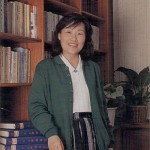 Chang So-an is the Research Fellow in Institute of Modern History, Academia Sinica. Her research fields are Ming-Qing intellectual history, classical confucian philosophy studies, the ritual studies, and the socio-culture history in early modern china. She received her Ph.D. in School of Chinese, University of Hong Kong (1986). She has been the Visiting Professor in Graduate institute of Chinese Literature, Fu Jen Catholic University, Taiwan, Department of History, Tsinghua University (Beijing) (2004), Harvard-Yenching Institute (2002-2003), and C.K. Lam East West Institute Hong Kong Baptist University (1997-1998). In 1988-1990, she was the Assistant Professor and Director of the Chinese Program, Department of Asian Studies, Seton Hall University, New Jersey, U.S.A. In 1988, she was the Lecturer of Department of Asian Languages and Civilizations, Rutgers University, New Jersey, U.S.A. Her publications include: A Study of the Academic Thought of Gong Zizhen (1997), Ling Ting-kan and the transition of Confucian philosophy in mid-Qing period (2001), and Debating Neo-Confucian Ritual Orthodoxy: Evidential Studies and the Reconstruction of Social Relations in Eighteenth-Century China (2005).
Chang So-an is the Research Fellow in Institute of Modern History, Academia Sinica. Her research fields are Ming-Qing intellectual history, classical confucian philosophy studies, the ritual studies, and the socio-culture history in early modern china. She received her Ph.D. in School of Chinese, University of Hong Kong (1986). She has been the Visiting Professor in Graduate institute of Chinese Literature, Fu Jen Catholic University, Taiwan, Department of History, Tsinghua University (Beijing) (2004), Harvard-Yenching Institute (2002-2003), and C.K. Lam East West Institute Hong Kong Baptist University (1997-1998). In 1988-1990, she was the Assistant Professor and Director of the Chinese Program, Department of Asian Studies, Seton Hall University, New Jersey, U.S.A. In 1988, she was the Lecturer of Department of Asian Languages and Civilizations, Rutgers University, New Jersey, U.S.A. Her publications include: A Study of the Academic Thought of Gong Zizhen (1997), Ling Ting-kan and the transition of Confucian philosophy in mid-Qing period (2001), and Debating Neo-Confucian Ritual Orthodoxy: Evidential Studies and the Reconstruction of Social Relations in Eighteenth-Century China (2005).
Chiu Peng-sheng, Professor of History, The Chinese University of Hong Kong
“Legal Reasoning in Economic Cases of Qing Central and Local Administration in the Mid-nineteenth century” (十九世紀中葉清代地方與中央經濟案件中的法律推理)
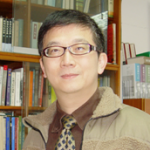 Chiu Peng-sheng is the Associate Researcher in Institute of History and Philolog, Academia Sinica. His research field is the economic history of the Ming and Qing Dynasties. He received his Ph.D. in Department of History, National Taiwan University (1995). He has been the Visiting Scholar in Harvard-Yenching Institute (2002-2003) and Institut d’Asie Orientale, ENS-LSH, Lyon (2006), the Visiting Lecturer in Department of History, National Taiwan University (1991-1992, 1996-1997), and Visiting Assistant Professor in National Chi Nan University, Taiwan (2001-2002). His publications include: 《十八、十九世紀蘇州城的新興工商業團體》(1990), and《當法律遇上經濟:明清中國的商業法律》(2008).
Chiu Peng-sheng is the Associate Researcher in Institute of History and Philolog, Academia Sinica. His research field is the economic history of the Ming and Qing Dynasties. He received his Ph.D. in Department of History, National Taiwan University (1995). He has been the Visiting Scholar in Harvard-Yenching Institute (2002-2003) and Institut d’Asie Orientale, ENS-LSH, Lyon (2006), the Visiting Lecturer in Department of History, National Taiwan University (1991-1992, 1996-1997), and Visiting Assistant Professor in National Chi Nan University, Taiwan (2001-2002). His publications include: 《十八、十九世紀蘇州城的新興工商業團體》(1990), and《當法律遇上經濟:明清中國的商業法律》(2008).
Benjamin Elman, Professor of East Asian Studies, Princeton University
“Early Modern or Late Imperial? Classical Philology in Eighteenth Century China”
 Benjamin Elman is Professor of East Asian Studies and History with his primary department in East Asian Studies. His teaching and research fields include: 1) Chinese intellectual and cultural history, 1000-1900; 2) history of science in China, 1600-1930; 3) history of education in late imperial China; 4) Sino-Japanese cultural history, 1600-1850. He received his Ph.D. in Oriental Studies from the University of Pennsylvania (1980) and came to Princeton in 2002 from the University of California, Los Angeles. From 1999 to 2001 he was the Mellon Visiting Professor in Traditional Chinese Civilization at the Institute for Advanced Study (Princeton, NJ). His publications include: From Philosophy To Philology (1984, 1990, 2001); Classicism, Politics, and Kinship (1990); A Cultural History of Civil Examinations in Late Imperial China (2000). He has recently completed two book projects: On Their Own Terms: Science in China, 1550-1900 (2005), and A Cultural History of Modern Science in Late Imperial China (2006). He is currently working on a project entitled “The Intellectual Impact of Late Imperial Chinese Classicism, Medicine, and Science in Tokugawa Japan, 1700-1850”.
Benjamin Elman is Professor of East Asian Studies and History with his primary department in East Asian Studies. His teaching and research fields include: 1) Chinese intellectual and cultural history, 1000-1900; 2) history of science in China, 1600-1930; 3) history of education in late imperial China; 4) Sino-Japanese cultural history, 1600-1850. He received his Ph.D. in Oriental Studies from the University of Pennsylvania (1980) and came to Princeton in 2002 from the University of California, Los Angeles. From 1999 to 2001 he was the Mellon Visiting Professor in Traditional Chinese Civilization at the Institute for Advanced Study (Princeton, NJ). His publications include: From Philosophy To Philology (1984, 1990, 2001); Classicism, Politics, and Kinship (1990); A Cultural History of Civil Examinations in Late Imperial China (2000). He has recently completed two book projects: On Their Own Terms: Science in China, 1550-1900 (2005), and A Cultural History of Modern Science in Late Imperial China (2006). He is currently working on a project entitled “The Intellectual Impact of Late Imperial Chinese Classicism, Medicine, and Science in Tokugawa Japan, 1700-1850”.
Johan Elverskog, Professor of Religious Studies, Southern Methodist University
“Injannashi and the End of Qing Cosmopolitanism”
 Johan Elverskog is Altshuler University Distinguished Professor and Chair of Religious Studies at Southern Methodist University. He is the author and editor of seven books including most recently Buddhism and Islam on the Silk Road (2010), and the edited volume Wutai Shan and Qing Culture (2011), which includes his essay “Wutai Shan, the Mongols, and Qing Cosmopolitanism.” His current book project is entitled Creative Destruction: An Environmental History of Buddhist Asia.
Johan Elverskog is Altshuler University Distinguished Professor and Chair of Religious Studies at Southern Methodist University. He is the author and editor of seven books including most recently Buddhism and Islam on the Silk Road (2010), and the edited volume Wutai Shan and Qing Culture (2011), which includes his essay “Wutai Shan, the Mongols, and Qing Cosmopolitanism.” His current book project is entitled Creative Destruction: An Environmental History of Buddhist Asia.
James Frankel, Associate Professor of Religion, University of Hawaii at Manoa
“Of Manchus and Muslims: Communal Identity Negotiation in Late Imperial China”
 James D. Frankel holds a Bachelor’s degree in East Asian Studies and a doctorate in Religion from Columbia University. With his training in the study of religion and his specialization in Islam, his expertise is in the history of Islam in China, a field that draws upon and informs his scholarly interests in the comparative history of ideas, and religious and cultural syncretism. Dr. Frankel’s recent first book, Rectifying God’s Name: Liu Zhi’s Translation of Monotheism and Islamic Ritual Law in Neo-Confucian China (University of Hawaii Press, 2011) examines Chinese Islamic scholarship and literature of the early Qing (1644-1911) period. He has lived in China and has traveled extensively in Asia and Europe, where his research has included work with scholars and religious leaders of Muslim minority communities. As a member of the faculty of Religion at University of Hawaii at Mānoa, Dr. Frankel teaches courses in Islam, comparative religion, and mysticism.
James D. Frankel holds a Bachelor’s degree in East Asian Studies and a doctorate in Religion from Columbia University. With his training in the study of religion and his specialization in Islam, his expertise is in the history of Islam in China, a field that draws upon and informs his scholarly interests in the comparative history of ideas, and religious and cultural syncretism. Dr. Frankel’s recent first book, Rectifying God’s Name: Liu Zhi’s Translation of Monotheism and Islamic Ritual Law in Neo-Confucian China (University of Hawaii Press, 2011) examines Chinese Islamic scholarship and literature of the early Qing (1644-1911) period. He has lived in China and has traveled extensively in Asia and Europe, where his research has included work with scholars and religious leaders of Muslim minority communities. As a member of the faculty of Religion at University of Hawaii at Mānoa, Dr. Frankel teaches courses in Islam, comparative religion, and mysticism.
R. Kent Guy, Professor of History, University of Washington
“The Appointment of Tian Wenjing and the Challenges Activism In Qing Provincial Government”
 R. Kent Guy is Professor of History and East Asian Studies, and Chair of the Department of History at the University of Washington. His undergraduate degree is from Yale, his MA and Ph.D. from Harvard. He has published three books, most recently Qing Governors and Their Provimces: The Evolution of Territorial Administration in China, 1644-1796.
R. Kent Guy is Professor of History and East Asian Studies, and Chair of the Department of History at the University of Washington. His undergraduate degree is from Yale, his MA and Ph.D. from Harvard. He has published three books, most recently Qing Governors and Their Provimces: The Evolution of Territorial Administration in China, 1644-1796.
Gail Hershatter, Distinguished Professor and Chair of History, University of California Santa Cruz
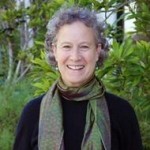 Gail Hershatter is Distinguished Professor and Chair of the Department of History at the University of California, Santa Cruz. Her books include The Workers of Tianjin, 1900-1949 (1986), Personal Voices: Chinese Women in the 1980s (with Emily Honig, 1988), Dangerous Pleasures: Prostitution and Modernity in Twentieth-Century Shanghai (1997), Women in China’s Long Twentieth Century (2007), and The Gender of Memory: Rural Women and China’s Collective Past (2011). She is Past President of the Association for Asian Studies (2011-2012).
Gail Hershatter is Distinguished Professor and Chair of the Department of History at the University of California, Santa Cruz. Her books include The Workers of Tianjin, 1900-1949 (1986), Personal Voices: Chinese Women in the 1980s (with Emily Honig, 1988), Dangerous Pleasures: Prostitution and Modernity in Twentieth-Century Shanghai (1997), Women in China’s Long Twentieth Century (2007), and The Gender of Memory: Rural Women and China’s Collective Past (2011). She is Past President of the Association for Asian Studies (2011-2012).
Emily Honig, Professor of History, University of California Santa Cruz
 Emily Honig is professor of history at the University of California, Santa Cruz. She is the author of Sisters and Strangers: Women in the Shanghai Cotton Mills, 1919-1949; Creating Chinese Ethnicity: Subei People in Shanghai, 1850-1980; and Personal Voices: Chinese Women in the 1980’s (co-authored with Gail Hershatter). Most recently, she has been conducting research on issues of gender and sexuality in the Cultural Revolution.
Emily Honig is professor of history at the University of California, Santa Cruz. She is the author of Sisters and Strangers: Women in the Shanghai Cotton Mills, 1919-1949; Creating Chinese Ethnicity: Subei People in Shanghai, 1850-1980; and Personal Voices: Chinese Women in the 1980’s (co-authored with Gail Hershatter). Most recently, she has been conducting research on issues of gender and sexuality in the Cultural Revolution.
Minghui Hu, Associate Professor of History, University of California Santa Cruz
“The Passage to Modern Chinese Thought: Reflections on the Emergence of Cosmopolitan Confucianism in Early Modern China”
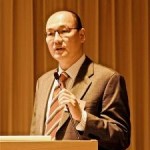 Minghui Hu teaches history of early modern China, early modern East Asia, and world history of science at University of California, Santa Cruz. Before his arrival at Santa Cruz in 2005, he taught a variety of courses at Korea University, California State University at Long Beach, University of California, Irvine, and served as an Andrew Mellon Postdoctoral Fellow at the University of Chicago. His book Cosmopolitan Confucians: The Passage to Modern Chinese Thought is forthcoming. His next project will focus on how technical knowledge, mingled with statecraft and literati learning, was put to use as an extension of the Qing state power to specific localities in the first half of the nineteenth century.
Minghui Hu teaches history of early modern China, early modern East Asia, and world history of science at University of California, Santa Cruz. Before his arrival at Santa Cruz in 2005, he taught a variety of courses at Korea University, California State University at Long Beach, University of California, Irvine, and served as an Andrew Mellon Postdoctoral Fellow at the University of Chicago. His book Cosmopolitan Confucians: The Passage to Modern Chinese Thought is forthcoming. His next project will focus on how technical knowledge, mingled with statecraft and literati learning, was put to use as an extension of the Qing state power to specific localities in the first half of the nineteenth century.
Huang Ko-wu, Researcher, Institute of Modern History, Academia Sinica
“Psychical Research and the Transformation of Knowledge in Modern China”
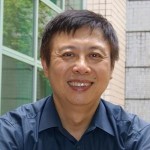 Huang Ko-wu is the Research Fellow and Director in Institute of Modern History, Academia Sinica and serves as Professor of Department of History, National Taiwan Normal University. His research fields are modern Chinese intellectual history, Ming-Qing cultural and intellectual history. He received his Ph.D. in History from the University of Stanford. His major publications include: 《一個被放棄的選擇:梁啟超調適思想之研究》(1994, 2006), 《自由的所以然:嚴復對約翰彌爾自由思想的認識與批判》(1998, 2000), The Meaning of Freedom: Yan Fu and the Origins of Chinese Liberalism (2008), and《惟適之安:嚴復與近代中國的文化轉型》(2010). He awarded the Recipient of the 2010 Dr. Hu Shih Memorial Chair in Academia Sinica and his research plan is about Chiang Kai-shek’s view of ethics and its practice.
Huang Ko-wu is the Research Fellow and Director in Institute of Modern History, Academia Sinica and serves as Professor of Department of History, National Taiwan Normal University. His research fields are modern Chinese intellectual history, Ming-Qing cultural and intellectual history. He received his Ph.D. in History from the University of Stanford. His major publications include: 《一個被放棄的選擇:梁啟超調適思想之研究》(1994, 2006), 《自由的所以然:嚴復對約翰彌爾自由思想的認識與批判》(1998, 2000), The Meaning of Freedom: Yan Fu and the Origins of Chinese Liberalism (2008), and《惟適之安:嚴復與近代中國的文化轉型》(2010). He awarded the Recipient of the 2010 Dr. Hu Shih Memorial Chair in Academia Sinica and his research plan is about Chiang Kai-shek’s view of ethics and its practice.
Liu Shu-qin, Professor of Taiwanese Literature, Tsinghua University (Taiwan)
“Wu Kun-huang (1909-1989) and Communist Underground in East Asia: Minority Discourse and Writers in Colonial Taiwan” (左翼走廊與吳坤煌:殖民地臺灣日語作家的少數敘事)
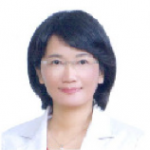 Liu Shu-Qin is Professor and Director of Institute of Taiwan Literature, National Tsing Hua University. She specializes in literature in colonial Taiwan (under Japanese occupation), focusing on the relationship between Japanese colonialism and how Taiwanese literature was produced. Her recent publication is 《荊棘之道:旅日青年的文學活動與文化抗爭》(聯經出版社,2009). She edited many scholarly volumes, such as 《後殖民的東亞在地化思考》(國家台灣文學館,2006),《台灣文學與跨文化流動》(行政院文建會,2007) and《帝國裡的「地方文化」:皇民化時期的台灣文化狀況》(播種者出版社,2009).
Liu Shu-Qin is Professor and Director of Institute of Taiwan Literature, National Tsing Hua University. She specializes in literature in colonial Taiwan (under Japanese occupation), focusing on the relationship between Japanese colonialism and how Taiwanese literature was produced. Her recent publication is 《荊棘之道:旅日青年的文學活動與文化抗爭》(聯經出版社,2009). She edited many scholarly volumes, such as 《後殖民的東亞在地化思考》(國家台灣文學館,2006),《台灣文學與跨文化流動》(行政院文建會,2007) and《帝國裡的「地方文化」:皇民化時期的台灣文化狀況》(播種者出版社,2009).
Tobie Meyer-Fong, Associate Professor of History, Johns Hopkins University
“A Cosmopolitan and His Past: Li Gui and the Record of Pondering Pain”
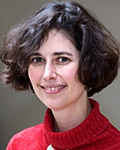 Tobie Meyer-Fong is Associate Professor and Director of Graduate Studies in the History Department at Johns Hopkins University. She is the author of Building Culture in Early Qing Yangzhou and co-editor of the journal Late Imperial China. Her second book, What Remains: Coming to Terms with Civil War in 19th century China, will be published by Stanford University Press in 2013.
Tobie Meyer-Fong is Associate Professor and Director of Graduate Studies in the History Department at Johns Hopkins University. She is the author of Building Culture in Early Qing Yangzhou and co-editor of the journal Late Imperial China. Her second book, What Remains: Coming to Terms with Civil War in 19th century China, will be published by Stanford University Press in 2013.
Stephen Roddy, Associate Professor of Asian Studies, University of San Francisco
“Zhina or Zhongyuan? Decentering the Center in Gong Zizhen’s Prose Writings”
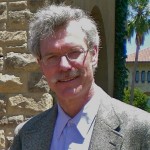 Stephen Roddy teaches East Asian literary and cultural studies at the University of San Francisco, and also directs the Masters Program in Asia Pacific Studies at USF’s Center for the Pacific Rim. His research centers on the nexus of literary and intellectual trends in 18th and 19th century China and Japan. He is currently working on a project that examines representations of civility and violence in late-Qing fiction.
Stephen Roddy teaches East Asian literary and cultural studies at the University of San Francisco, and also directs the Masters Program in Asia Pacific Studies at USF’s Center for the Pacific Rim. His research centers on the nexus of literary and intellectual trends in 18th and 19th century China and Japan. He is currently working on a project that examines representations of civility and violence in late-Qing fiction.
Lisa Rofel, Professor of Anthropology, University of California Santa Cruz
 Lisa Rofel is a professor of Anthropology at the University of California, Santa Cruz. She is the author of Other Modernities: Gendered Yearnings in China after Socialism (University of California Press) and Desiring China: Experiments in Neoliberalism, Sexuality and Public Culture (Duke University Press). She is currently at work on the Twenty-first Century Silk Road, a collaborative project on transnational capitalism between China and Italy in the fashion industry, with Sylvia Yanagisako.
Lisa Rofel is a professor of Anthropology at the University of California, Santa Cruz. She is the author of Other Modernities: Gendered Yearnings in China after Socialism (University of California Press) and Desiring China: Experiments in Neoliberalism, Sexuality and Public Culture (Duke University Press). She is currently at work on the Twenty-first Century Silk Road, a collaborative project on transnational capitalism between China and Italy in the fashion industry, with Sylvia Yanagisako.
Ban Wang, Professor of East Asian Languages and Cultures, Stanford University
“Enlightenment, Humanism, National Culture, and the Chinese Concept of World Literature”
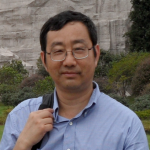 Ban Wang is the William Haas Professor in Chinese Studies at Stanford University and the Yangtze River Chair Professor at East China Normal University. He is currently chairperson of the Departments of Asian Languages and Cultures. His major publications include The Sublime Figure of History: Aesthetics and Politics in Twentieth–Century China (Stanford UP, 1997), Illuminations from the Past (Stanford UP, 2004), and History and Memory (in Chinese, Oxford UP, 2004). He co-edited Trauma and Cinema (Hong Kong UP, 2004), The Image of China in the American Classroom (Nanjing UP, 2005), China and New Left Visions (forthcoming Lexington), and Debating Socialist Legacy in China (forthcoming Palgrave). He edited Words and Their Stories: Essays on the Language of the Chinese Revolution (Brill, 2010). He has been a research fellow with the National Endowment for the Humanities in 2000 and the Institute for Advanced Study at Princeton in 2007. He has taught at Beijing Foreign Studies University, SUNY-Stony Brook, Harvard University, Rutgers University, Seoul National University, and E. China Normal University. Working with Russell Berman of Stanford, he coedited a special issue of Telos (summer 2010) on “China: Critical Theory, Market Society, and Culture,” and co-taught the NEH seminar “Shanghai and Berlin: Urban Modernism” in 2010 and 2011.
Ban Wang is the William Haas Professor in Chinese Studies at Stanford University and the Yangtze River Chair Professor at East China Normal University. He is currently chairperson of the Departments of Asian Languages and Cultures. His major publications include The Sublime Figure of History: Aesthetics and Politics in Twentieth–Century China (Stanford UP, 1997), Illuminations from the Past (Stanford UP, 2004), and History and Memory (in Chinese, Oxford UP, 2004). He co-edited Trauma and Cinema (Hong Kong UP, 2004), The Image of China in the American Classroom (Nanjing UP, 2005), China and New Left Visions (forthcoming Lexington), and Debating Socialist Legacy in China (forthcoming Palgrave). He edited Words and Their Stories: Essays on the Language of the Chinese Revolution (Brill, 2010). He has been a research fellow with the National Endowment for the Humanities in 2000 and the Institute for Advanced Study at Princeton in 2007. He has taught at Beijing Foreign Studies University, SUNY-Stony Brook, Harvard University, Rutgers University, Seoul National University, and E. China Normal University. Working with Russell Berman of Stanford, he coedited a special issue of Telos (summer 2010) on “China: Critical Theory, Market Society, and Culture,” and co-taught the NEH seminar “Shanghai and Berlin: Urban Modernism” in 2010 and 2011.
Wang Hui, Professor of Chinese Language and Literature, Tsinghua University (Beijing)
“Why Culture?: Republicanism, Cosmopolitanism, and the Great War of the 1910s”
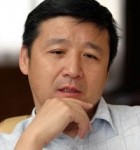 Wang Hui is Professor of Chinese Language and Literature at Tsinghua University. Sent to compulsory “re-education” in a poor inland province for his role in the Tiananmen Square protests of 1989, Wang Hui is a leading member of China’s “New Left” movement and a past editor of Dushu, one of China’s most influential literary journals. In China’s New Order: Society, Politics, and Economy in Transition, Wang Hui offers a powerful analysis of China and the transformations it has undertaken since 1989, critiquing the country’s economic reforms, social polarization, and political corruption. He is also the author of The End of the Revolution: China and the Limits of Modernity. In May of 2008, Foreign Policy named him one of the top 100 public intellectuals in the world.
Wang Hui is Professor of Chinese Language and Literature at Tsinghua University. Sent to compulsory “re-education” in a poor inland province for his role in the Tiananmen Square protests of 1989, Wang Hui is a leading member of China’s “New Left” movement and a past editor of Dushu, one of China’s most influential literary journals. In China’s New Order: Society, Politics, and Economy in Transition, Wang Hui offers a powerful analysis of China and the transformations it has undertaken since 1989, critiquing the country’s economic reforms, social polarization, and political corruption. He is also the author of The End of the Revolution: China and the Limits of Modernity. In May of 2008, Foreign Policy named him one of the top 100 public intellectuals in the world.
R. Bin Wong, Director of the UCLA Asia Institute and Professor of History, University of California Los Angeles
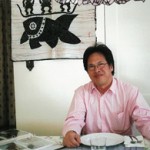 Before coming to UCLA in 2004, Bin Wong served as Director of the Center for Asian Studies at UC Irvine where he was also Chancellor’s Professor of History and Economics. At UCLA he is responsible for overseeing and coordinating activities in five research centers and developing new initiatives in Asian Studies fields. Wong’s own research has examined Chinese patterns of political, economic and social change, especially since eighteenth century, both within Asian regional contexts and compared with more familiar European patterns. Among his books, China Transformed: Historical Change and the Limits of European Experience (Cornell University Press, 1997) is the best known. Japanese and Korean translations are under way. Wong has also written or co-authored some fifty articles published in North America, East Asia and Europe, published in Chinese, English, French and Japanese in journals that reach diverse audiences within and beyond academia. Recent publications include an essay “East Asia as a World Region in the 21st Century” in Nihon Keizai Shimbun. A ten-page interview regarding his scholarship, intellectual background and vision appears in the August 2004 issue of Shehui kexue, published by the Shanghai Academy of Social Sciences.
Before coming to UCLA in 2004, Bin Wong served as Director of the Center for Asian Studies at UC Irvine where he was also Chancellor’s Professor of History and Economics. At UCLA he is responsible for overseeing and coordinating activities in five research centers and developing new initiatives in Asian Studies fields. Wong’s own research has examined Chinese patterns of political, economic and social change, especially since eighteenth century, both within Asian regional contexts and compared with more familiar European patterns. Among his books, China Transformed: Historical Change and the Limits of European Experience (Cornell University Press, 1997) is the best known. Japanese and Korean translations are under way. Wong has also written or co-authored some fifty articles published in North America, East Asia and Europe, published in Chinese, English, French and Japanese in journals that reach diverse audiences within and beyond academia. Recent publications include an essay “East Asia as a World Region in the 21st Century” in Nihon Keizai Shimbun. A ten-page interview regarding his scholarship, intellectual background and vision appears in the August 2004 issue of Shehui kexue, published by the Shanghai Academy of Social Sciences.
Peter Zarrow, Researcher, Institute of Modern History, Academia Sinica
“From Self-cultivation to Civics: Morality and Social Knowledge in Early Twentieth-century Textbooks” (從修身課到公民課:道德教育與社會知識在清末民初的教科書 )
 Peter Zarrow is the Research Fellow and Deputy Director in Institute of Modern History, Academia Sinica. His research fields are national identity, civil education and enlightenment thoughts, comparative studies of textbooks of middle and primary schools in modern China, 1902-1937. He received his Ph.D. from Columbia University (1987). His publications include: Anarchism and Chinese Political Culture (2005), China in War and Revolution, 1895-1949 (2005), Creating Chinese Modernity: Knowledge and Everyday Life, 1900-1940 (2006), and After Empire: The Conceptual Transformation of the Chinese State, 1885-1924 (2012). He co-wrote Rethinking the 1898 Reform Period: Political and Cultural Change in Late Qing China (2002), and Transforming History: The Making of a Modern Academic Discipline in Twentieth-Century China (2011). Currently his research plans are “From Empire to Nation: The Conceptual Transformation of the Chinese State and the Revolution of 1911” and “Chinese Children and Global Violence: War, Rebellion, and Restoration in Textbooks, 1900-1937”.
Peter Zarrow is the Research Fellow and Deputy Director in Institute of Modern History, Academia Sinica. His research fields are national identity, civil education and enlightenment thoughts, comparative studies of textbooks of middle and primary schools in modern China, 1902-1937. He received his Ph.D. from Columbia University (1987). His publications include: Anarchism and Chinese Political Culture (2005), China in War and Revolution, 1895-1949 (2005), Creating Chinese Modernity: Knowledge and Everyday Life, 1900-1940 (2006), and After Empire: The Conceptual Transformation of the Chinese State, 1885-1924 (2012). He co-wrote Rethinking the 1898 Reform Period: Political and Cultural Change in Late Qing China (2002), and Transforming History: The Making of a Modern Academic Discipline in Twentieth-Century China (2011). Currently his research plans are “From Empire to Nation: The Conceptual Transformation of the Chinese State and the Revolution of 1911” and “Chinese Children and Global Violence: War, Rebellion, and Restoration in Textbooks, 1900-1937”.
Zhang Qing, Professor of History, Fudan University (Shanghai)
“New Media and the Production and Dissemination of Knowledge in Modern China” (新型媒介與近代中國的“知識傳播”與“知識生產”)
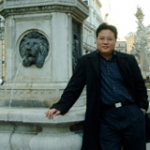 Zhang Qing is Professor and Director of Fudan University Department of History (Shanghai). His research field is modern Chinese intellectual and cultural history. He received his Ph.D. in Fudan University Department of History (Shanghai, 1998). His major publications include: 《亭子间:一群文化人和他们的事业》(1991), 《胡适评传》(1992, 1997), 《殷海光》(1996), 《“胡适派学人群”与现代中国自由主义》(2004), and《思想之旅:殷海光生平与志业》(2006).
Zhang Qing is Professor and Director of Fudan University Department of History (Shanghai). His research field is modern Chinese intellectual and cultural history. He received his Ph.D. in Fudan University Department of History (Shanghai, 1998). His major publications include: 《亭子间:一群文化人和他们的事业》(1991), 《胡适评传》(1992, 1997), 《殷海光》(1996), 《“胡适派学人群”与现代中国自由主义》(2004), and《思想之旅:殷海光生平与志业》(2006).
